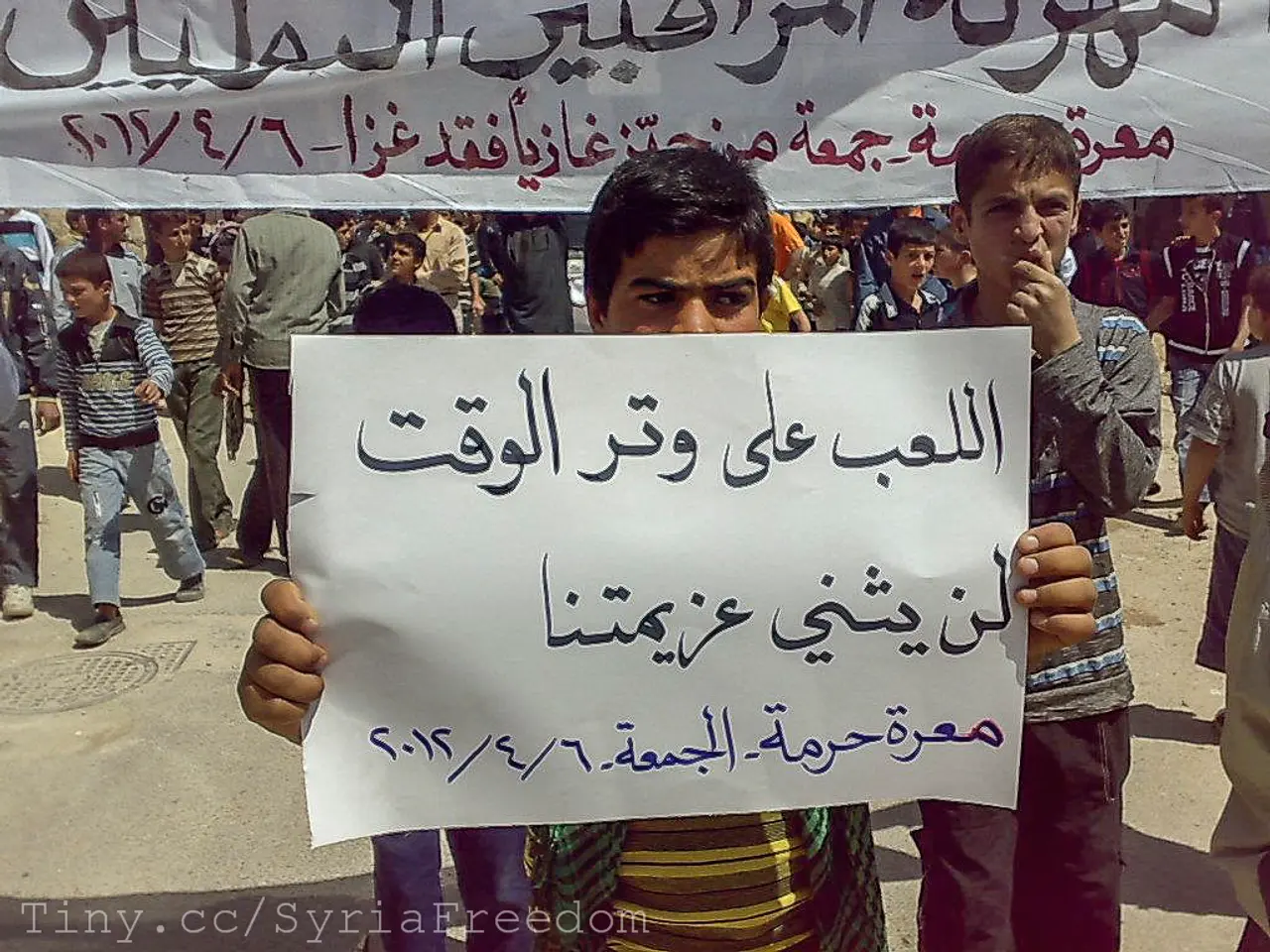EU Countries Gain Flexibility on Strict 2040 Climate Goal Set by Brussels - EU nations gain increased flexibility in setting 2040 climate goals, as per decisions made by Brussels.
The European Union (EU) is moving forward in its quest to reduce greenhouse gas emissions, with researchers expressing optimism that the bloc is on track to meet its first interim target of a 55% reduction by 2030 [1]. As the EU looks ahead to 2040, plans are underway for a non-binding target for 2035, which could be decided at a meeting of EU environment ministers in Brussels in September [2].
In a bid to ensure climate protection while allowing for flexibility in achieving these targets, Brussels is proposing EU-wide uniform quality standards for CO2 certificates from abroad. These standards, outlined in the EU Carbon Removal Certification Framework (CRCF) Regulation (EU/2024/3012), focus on four key quality principles: additionality, robust quantification, permanence, and environmental sustainability [3].
The CRCF, which entered into force in December 2024, details certification methodologies for various carbon removal technologies like Direct Air Capture with Carbon Storage (DACCS), Bio-CCS, and Biochar. However, recent assessments suggest that the CRCF methodologies set a lower standard than the Article 6.4 Paris Agreement Crediting Mechanism and fail to meet criteria established by voluntary market integrity bodies [4].
The EU's climate target for 2040 is an interim step towards climate neutrality by 2050, when the EU aims to only emit as much greenhouse gas as nature can absorb or store with technical methods [5]. From 2036, EU countries may buy CO2 certificates from third countries for the remaining three percent of emissions.
Notably, EU countries will be able to count CO2 certificates from abroad for a part of the emissions, a move aimed at providing flexibility in meeting the ambitious climate targets. This negotiation process is currently ongoing between the EU countries and the European Parliament [6].
As the EU derives the 2035 target as a means to prepare for the COP30 climate conference in Brazil in November, the bloc is also aiming to use these negotiations to set a path towards the conference [7]. An example of a country that pays for carbon storage or savings in third countries is Switzerland, which pays for electric buses in Thailand [8].
The specific non-binding target for 2035 and the EU-wide quality standards for foreign CO2 certificates have not been detailed in the provided information, but the EU Commission is set to give more leeway for the European climate targets for 2040 [2]. The exclusion of the use of CRCF certified units for international compliance (third-party NDCs) is set for review by July 2026 [2].
In conclusion, the proposed EU-wide quality standards for CO2 certificates from abroad emphasize strict principles of additionality, permanence, robust quantification, and environmental sustainability under the CRCF framework. The framework also currently limits the use of these certificates for international compliance purposes, as the EU focuses on domestic emissions reductions linked to its ambitious 2040 climate targets.
- Environmental protection is a key focus in the European Union's (EU) plans, as seen in their pursuit of reducing greenhouse gas emissions by 55% by 2030 and striving for climate neutrality by 2050.
- The EU is also looking at environmental science, particularly carbon removal technologies like Direct Air Capture with Carbon Storage (DACCS), Bio-CCS, and Biochar, in its quest for climate protection and meeting its emission targets.
- In order to ensure the integrity of these certificates and maintain high environmental standards, the EU has proposed EU-wide uniform quality standards for CO2 certificates from abroad, outlining four key principles: additionality, robust quantification, permanence, and environmental sustainability.








